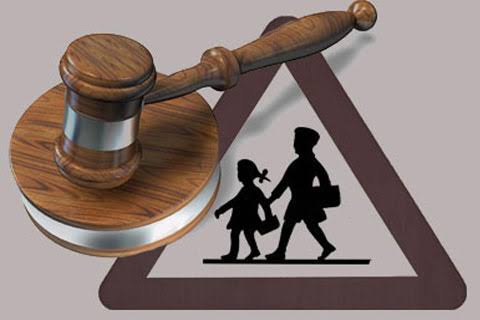LEGAL PROTECTION FOR THE WELFARE OF ADOPTED CHILDREN
Adoption is a noble practice which provides orphan children a fair chance to live their lives like a normal child who is loved and take care by their parents. It is a legal as well as an emotional process in which people who are not be able to become parents because of any reason whatsoever can adopt a child who is not biologically connected to them and become the adoptive parents of that adopted child. After the process of the adoption, all the responsibilities and the duties regarding to the child will be transferred to the adopted parents entirely as they are the biological parents of that child, so in brief we say that “Adoption” exclusively transforms the lives of the adopted child along with his adoptive parents.
In India, the legal framework for adoption plays a pivotal role in maintaining and regulating the adoption agency alongside with a view to keep an eye constantly towards the well-being of the adopted children. This article explores the legal safeguards in place to protect the rights and welfare of the adopted children in India.
JUVENILE JUSTICE (CARE AND PROTECTION OF CHILDREN) ACT, 2015
Juvenile Justice Act, 2015, substitutes the Juvenile justice Act, 2000. The main objective of this act is to ensure the care, protection and rehabilitation of those children who are in the conflict with the law and needs proper care and protection.
This act defines a juvenile as a child who has not completed the age of eighteen years and established Juvenile Justice Board at district level to deal with the matters related to the children who are in conflict with law, and also upholds the Child Welfare Committee (CWC) who is responsible to deal with issues concerning to the needs, care and protection of children.
CENTRAL ADOPTION RESOURCE AUTHORITY (CARA)
Central Adoption Resource Authority is a statutory body which helps to regulate the In-country and Inter-country adoptions with a view to expand the adoption of orphan, abandoned and helpless children and help them to live their lives like a normal and a happy child which every child deserves.
CARA assigned with the authority of regulating and monitoring the inter-country adoption in India in accordance with the provision of Hague convention of Inter-country adoption, 1993 which is ratified by India in 2003.
LEGAL DOCUMENTATION AND COURT APPROVAL
The adoption process consist a wide and meticulous documental and court approval by the adoptive parents to create all the legal and biological relations with the adopted child with themselves. All the legal formalities such as adoption deeds, proves which courts concerned, court orders inclusive paper work, all these formalities made the adoption process a critical route for the adoptive parents but at the same time this process is crucial too.
POST ADOPTION FOLLOW-UP
Post adoption follow-up process gives access to keep an eye to check the well-being of the adopted child, as everything going well between the adopted child and the adoptive parents. Majorly, it ensures that any challenge or difficulty faced by the adopted child and parents can be addressed promptly, further enhancing the child’s welfare.
INHERITANCE AND SUCCESSION RIGHTS
After the completion of all the adoption process, the adopted child automatically upholds or granted with all the rights which can be inherited or succeeded by the biological child from his or her parents. Objective of this right assures the protection and well-being of the adopted child.

CONCLUSION
Legal protection of adopted children in India is multi-faceted framework designed to secure their well-being and future. The JJA coupled with the diligent work of CARA along with all the steps which we have discussed above, established a robust system that prioritize the best interest of the adopted child.
Author: Vanshita Agarwal, a Student of Agra College, Agra


